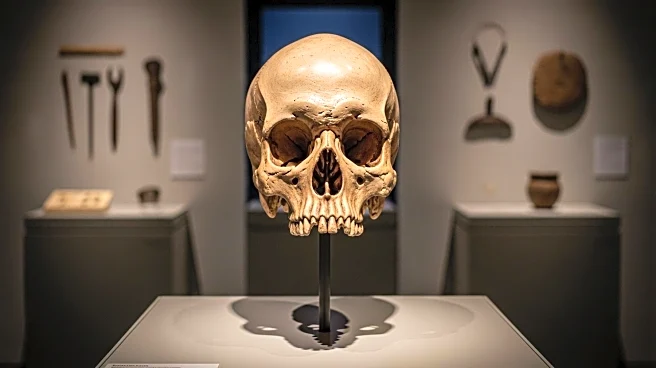What's Happening?
A recent study of a million-year-old skull, known as Yunxian 2, discovered in China, suggests that the origins of modern humans may date back further than previously thought. The skull, initially classified as Homo erectus, has been reanalyzed using advanced reconstruction techniques, leading scientists to propose it belongs to Homo longi, a group closely related to Denisovans. This finding challenges the traditional view that Homo sapiens originated in Africa, suggesting instead that they may have emerged in western Asia. The study, published in the journal Science, posits that the evolutionary split between modern humans and their closest relatives occurred at least 400,000 years earlier than previously believed.
Why It's Important?
This discovery has significant implications for the understanding of human evolution, potentially rewriting the narrative of where and when Homo sapiens first appeared. If confirmed, it could alter the scientific consensus on human ancestry and migration patterns, impacting fields such as anthropology, archaeology, and genetics. The study also highlights the importance of technological advancements in paleontology, as new methods allow for more accurate interpretations of ancient fossils. This research may prompt further investigations into other fossil sites, potentially leading to new insights into the complex history of human evolution.









